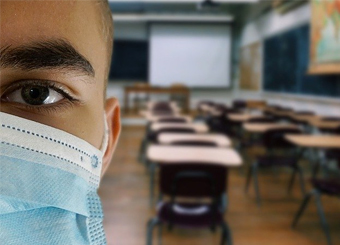Liability Considerations for Higher Education in the COVID-19 Era

It is well known that the coronavirus has impacted nearly every aspect of daily life over the last few months. As universities have adapted to these changes, the next step will be to plan for the resumption and reopening of at least certain onsite activities in light of the coronavirus.
While UTSA aims to promote a thriving university environment, the safety of its employees and students are always first priority. With safety in mind universities must consider the potential liability implications when reopening their campuses. Even with taking every precaution, the risk of the coronavirus is still present. Because of that risk universities must ask themselves what happens if someone on campus gets sick and, what are the universities’ options, if someone brings suit as a result of getting sick.
The first defense universities can look to is immunity. Attempts are currently underway, at both the federal and state level, to extend immunity to colleges and universities, specifically as it relates to the coronavirus. If lawmakers decide to extend immunity to colleges and universities, they may also issue specific guidelines universities must adhere to. Any such guidelines would likely state what they must be doing rather than suggest recommendations of ways to reduce the spread of the virus. Those would also likely exclude at least gross negligence and intentional misconduct from protection. More information on immunity can be expected in the upcoming weeks.
Aside from claiming immunity, institutions of higher education could raise other defenses in the face of a lawsuit, including causation and contributory negligence. The former would seek to place the burden on the plaintiff to prove that he/she acquired the virus on campus, as opposed to any other establishment or setting. Contributory negligence, meanwhile, would seek to show that it was the plaintiff’s carelessness (e.g. refusing to wear a mask, attending large gathering off campus events, etc.) which was at least partially responsible for the infection.
Yet another approach universities can consider as protection against litigation is providing faculty, staff, and students with an assumption of risk notice, or sign a liability waiver before they return to campus. Any such waiver must clearly and unambiguously express the university’s intent to be released from liability, as well as the scope of the conduct to be covered by the release – in this case, coronavirus infections. The waiver, however, cannot waive liability arising from intentional, reckless, or grossly negligent conduct, nor can the waiver be contrary to public policy, raising questions as to whether it would be upheld in a court of law. Implementing such a waiver would also pose several logistical and practical challenges, not the least of which would be ensuring that everyone on a large open campus signs the waiver.
Ultimately, one of the best ways for universities to mitigate the risk of legal liability in connection with the coronavirus is to follow the safety guidelines put forth by the leading federal, state, and local public health authorities, implement them properly, and be transparent with faculty, staff, and students. UTSA has already issued its Public Health Task Force report on reopening campus based on those guidelines and is in the process of developing and implementing specific policies and practices consistent with such report. Lastly, it must be made clear, with safety in mind, that there is still risk with returning to campus, and to otherwise communicate with faculty, staff, and students as plans may change or evolve. UTSA currently has a page dedicated to the coronavirus and updates information in it frequently.
In the end, all of us on campus must understand that we have a shared responsibility for the safety of each other and our overall university community, as we contemplate the reopening of campus in the fall.
Information regarding UTSA’s response to COVID-19 can be found at https://www.utsa.edu/coronavirus/
The contents of this article are intended to convey general information only, and not to provide legal advice or opinions. Please contact the Office of Legal Affairs (210-458-4105) to obtain legal counsel on any particular university issue or matter.